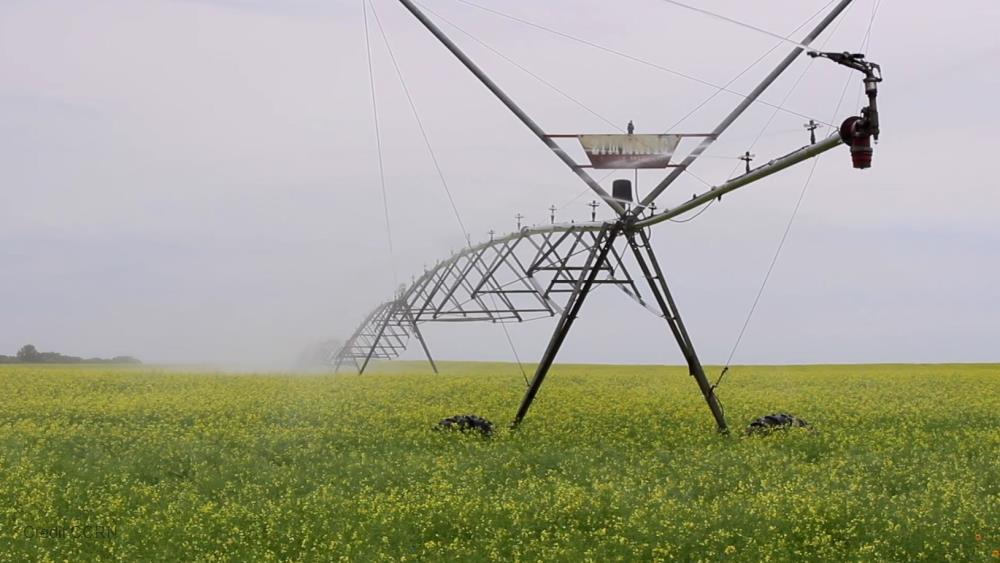
Related items loading ...
Section 1: Publication
Publication Type
Conference Presentation
Authorship
Eamen Leila, Razavi Saman, and Brouwer Roy
Title
Hydro-economic models for informing water management decisions – are we using the right modelling tools?
Year
2022
Publication Outlet
AOSM2022
DOI
ISBN
ISSN
Citation
Leila Eamen, Saman Razavi, and Roy Brouwer (2022). Hydro-economic models for informing water management decisions – are we using the right modelling tools?. Proceedings of the GWF Annual Open Science Meeting, May 16-18, 2022.
Abstract
One initial step to moving towards bridging the gap between science and practice is to make the modelling results relevant to support decision-makers. Taking the right modelling approach is crucial to avoid misleading results and inform decision-making about identifying effective and efficient strategies. Making such decisions needs insight into the consequences of alternative strategies from different perspectives, such as an economic perspective. By developing hydro-economic models that include economics in water management, we can understand the economic impacts of not only alternative water management strategies but also external drivers such as climate change and socio-economic development. With several approaches to developing hydro-economic models, the key is to find the most relevant model to inform decision-making.
In this study, we investigate the applicability of different approaches to evaluating economic impacts in water management studies. We developed two hydro-economic models and investigated the relevance of their findings to support decision-making in a transboundary river basin. The models are (1) an engineering-based hydro-economic model following the common practice in water management studies that consists of a detailed water resources system model and a simplified economic component and (2) an integrated hydro-economic model following a more interdisciplinary approach that captures both the local-scale water resource operations and the river basin economy. These models are developed for the transboundary Saskatchewan River Basin because (a) its water system is heavily regulated across different jurisdictions, and (b) several interdependent direct and indirect water-using sectors with economic linkages dominate its economy.
Our findings show that although developing an integrated hydro-economic model is challenging and highly data-demanding, its results seem most relevant to inform decision-making about water management strategies in a transboundary river. The integrated hydro-economic model captures water resource operations, direct and indirect water-using sectors, and economic interconnectedness. The engineering-based model, however, only accounts for direct water-using sectors, e.g., irrigation, without capturing their interconnections with the rest of the economy. Although these models help understand the interactions between elements of the water system, they fail to capture the impacts of water management strategies on the entire economy. This limitation becomes even more critical in multi-sectoral and multi-regional regions such as the Saskatchewan River Basin, where direct water-using sectors are only responsible for about 30% of the economy. Under such circumstances, even if we have required data at the proper scale to include all direct water-using sectors in these models, we still neglect almost 70% of the economy.
Plain Language Summary
Section 2: Additional Information
Program Affiliations
Project Affiliations
Submitters
|
Leila Eamen | Submitter/Presenter | leila.eamen@usask.ca | Global Institute for Water Security - University of Saskatchewan |
Publication Stage
N/A
Theme
Human Dimensions - Impact and Management
Presentation Format
10-minute oral presentation
Additional Information
AOSM2022 Core Modelling and Forecasting Team, Integrated Modelling Program for Canada First Author: Leila Eamen, Global Institute for Water Security, University od Saskatchewan Additional Authors: Saman Razavi, Global Institute for Water Security, University od Saskatchewan and Roy Brouwer, The Water Institute, University of Waterloo


 GWFNet
GWFNet Master
Master Data
Data Research
Research Map
Map
 Advanced
Advanced Tools
Tools
 . . .
. . .
 Metadata Editor
Metadata Editor
 Record List
Record List
 Alias List Editor
Alias List Editor
 Legacy sites
Legacy sites